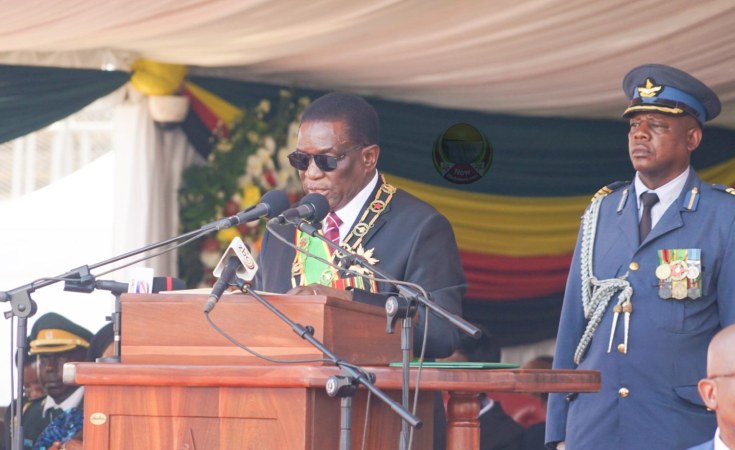Today, on September 4, 2023, Zimbabweans have gathered for the swearing in of Emmerson Mnangagwa as their president for a second term.
The inauguration ceremony is unfolding at the grand National Sports Stadium in the heart of the capital, Harare.
Mnangagwa's victory in the August 23-24 election secured his place as the nation's leader, triumphing over his main rival, Nelson Chamisa of the Citizens Coalition for Change (CCC).
The elections have been marked by claims of irregularities, but the Zimbabwe Electoral Commission (ZEC) unequivocally declared the results as free and fair.
The inauguration has attracted a distinguished assembly of regional leaders and dignitaries, reinforcing the significance of this occasion.
Among those in attendance are South African President Cyril Ramaphosa, Botswana President Mokgweetsi Masisi, Namibian President Hage Geingob including the former First Lady, Grace Mugabe and daughter Bona Mugabe.
There is a substantial deployment of both police and military personnel in Harare.
The start of Mnangagwa's second term presents a complex set of challenges.
Zimbabwe grapples with a multifaceted economic crisis characterized by high unemployment, soaring inflation, and widespread poverty.
The aftermath of the recent election has further intensified political divisions within the nation.
Nonetheless, Mnangagwa's extensive political experience and pragmatic leadership style offer a glimmer of hope. He is renowned for his ability to navigate complex issues and achieve tangible results.
While the road ahead may be daunting, there is an opportunity for him to make a substantial impact on the lives of Zimbabweans.
Here are some of the critical challenges that President Mnangagwa will confront during his second term:
Economic Revival: Zimbabwe's economy faces severe challenges, including high unemployment rates and rampant inflation. Mnangagwa must formulate strategies to stimulate economic growth and job creation.
Political Reconciliation: The recent election has amplified political divides in the country. Mnangagwa's leadership will be crucial in unifying the nation and rebuilding trust among different political factions.
Anti-Corruption Measures: Zimbabwe has grappled with corruption at various levels of government. The president must take resolute steps to combat this deeply entrenched issue.
Land Reform: The contentious land reform program in Zimbabwe remains a key source of instability. Mnangagwa faces the delicate task of addressing land issues fairly and equitably for all Zimbabweans.
These challenges form a formidable backdrop to President Mnangagwa's second term. While the path forward may be challenging, his leadership holds the potential to significantly improve the lives and prospects of Zimbabwean citizens.
As the nation embarks on this new chapter, hope and expectation fill the air, underpinned by the belief that decisive action and inclusive governance can shape a brighter future for Zimbabwe.


